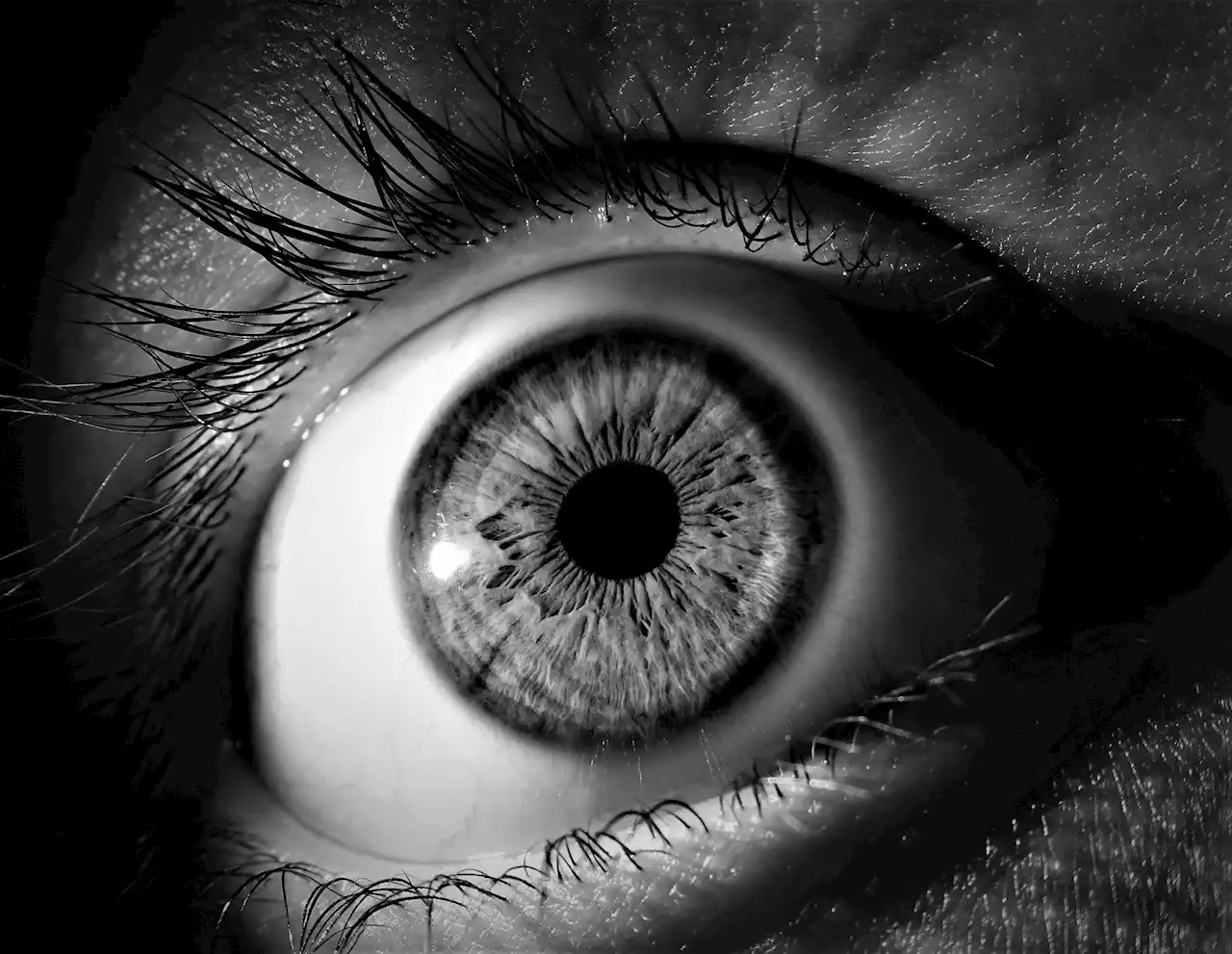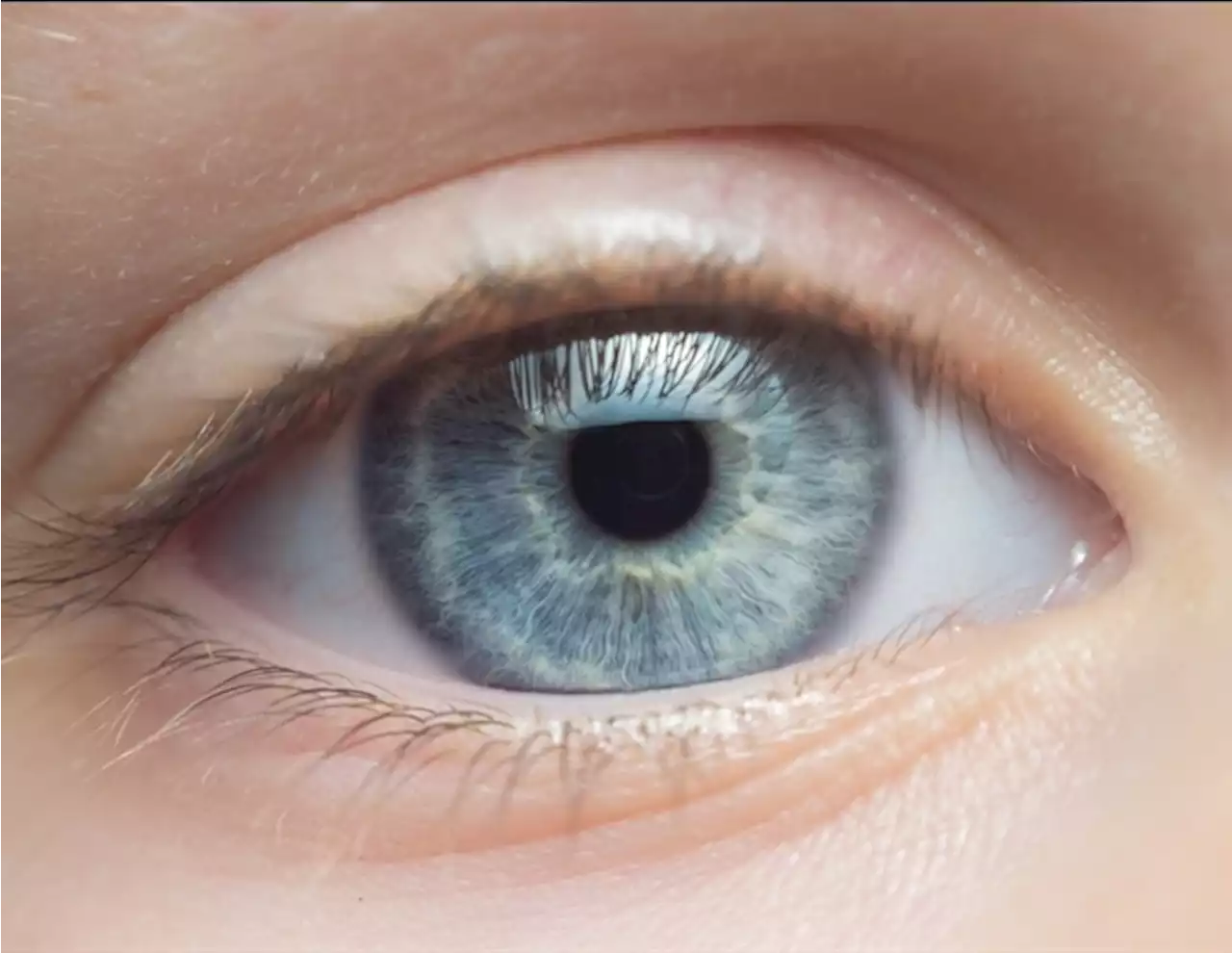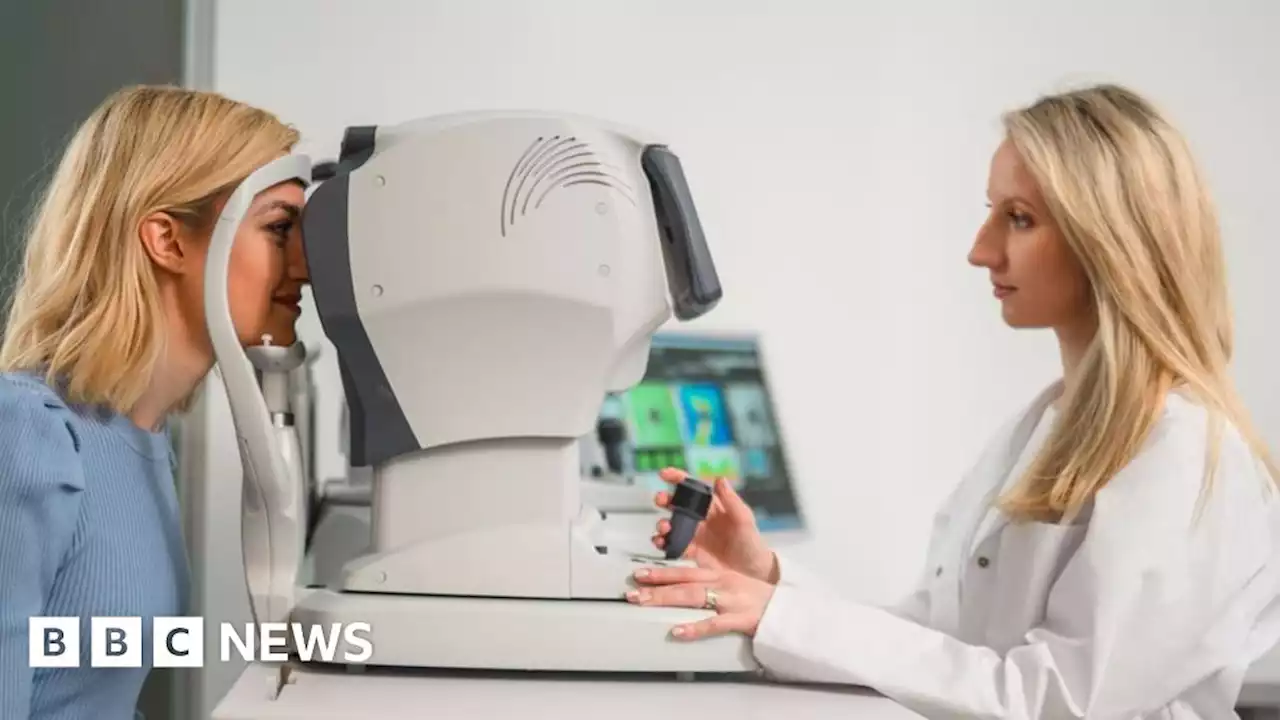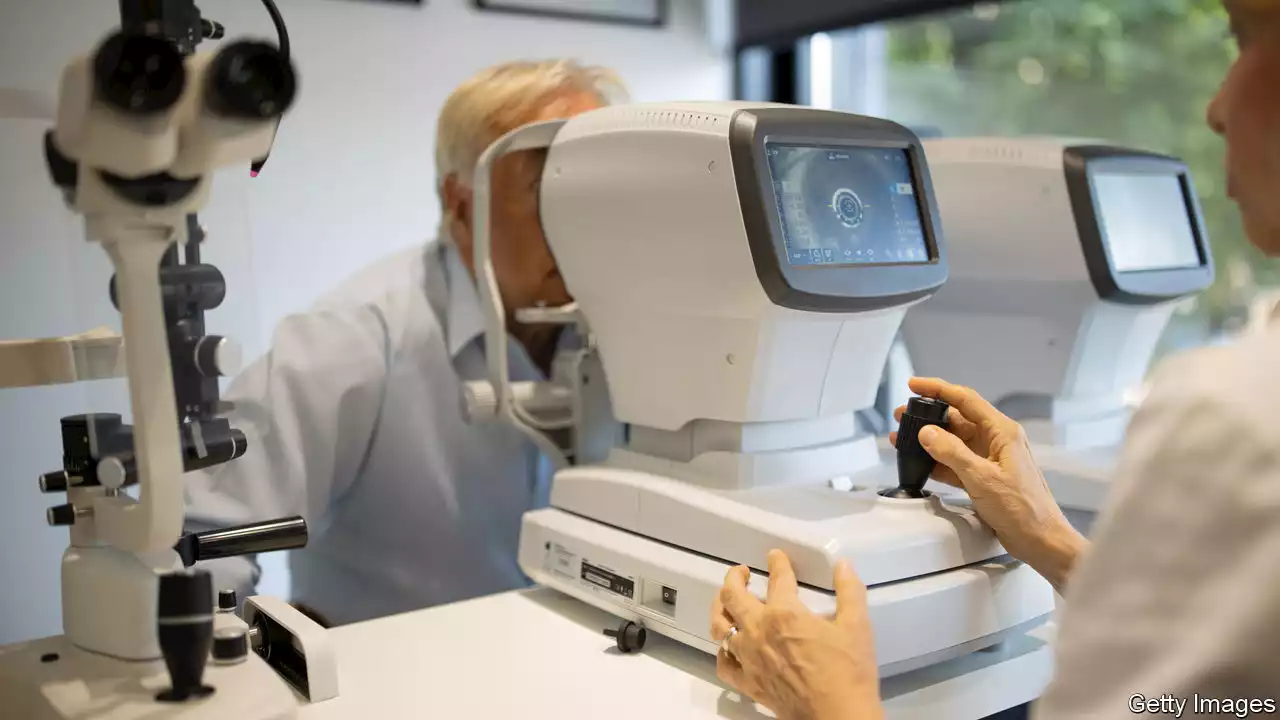So-called “ocular biomarkers” may provide insights into brain health
. They are already used to detect predispositions to physical-health problems like high blood pressure and diabetes. On August 21st
researchers at Moorfields Eye Hospital and University College London’s Institute of Ophthalmology published a paper in which they said they had identified markers ofin the eye seven years before it would have been apparent using existing tests. How? Changes in the eye, particularly the retina, sometimes appear to reflect changes in the brain. The retina is like a piece of wet tissue paper at the back of the eye that contains light-sensitive nerve cells in many distinct layers. It grows from the same tissue as the brain during embryonic development and is connected to the brain by the optic nerve. It thus shares many of the brain’s characteristics.
Scientists have long suspected that the thinning of the retina may be an indicator of Parkinson’s. In the new paper, published in, researchers have shown this relationship in a fairly comprehensive way. First they used machine learning to analysescans of more than 150,000 eye-hospital patients over the age of 40.
The hunt for ocular “biomarkers” is a promising area of research. Pearse Keane, one of the authors of the recent Parkinson’s study, says that scientists have known for more than a century that signs of diseases in the body can be detected with eye tests. Researchers hope that the proliferation ofmachines and advances in artificial intelligence will supercharge their efforts.
United Kingdom Latest News, United Kingdom Headlines
Similar News:You can also read news stories similar to this one that we have collected from other news sources.
 Geordie Shore star forced to shut down his posh restaurant after just 2 yearsGEORDIE Shore star Greg Lake has been forced to shut down his posh restaurant after going bust. The 38-year-old, who appeared in the first series of the MTV show, opened the exclusive eatery, calle…
Geordie Shore star forced to shut down his posh restaurant after just 2 yearsGEORDIE Shore star Greg Lake has been forced to shut down his posh restaurant after going bust. The 38-year-old, who appeared in the first series of the MTV show, opened the exclusive eatery, calle…
Read more »
 Eye scans detect signs of Parkinson's disease up to seven years before diagnosisMarkers that indicate the presence of Parkinson's disease in patients on average seven years before clinical presentation have been identified by a UCL and Moorfields Eye Hospital research team.
Eye scans detect signs of Parkinson's disease up to seven years before diagnosisMarkers that indicate the presence of Parkinson's disease in patients on average seven years before clinical presentation have been identified by a UCL and Moorfields Eye Hospital research team.
Read more »
 AI-powered eye scans could revolutionize early detection of Parkinson'sMarkers that indicate the presence of Parkinson's disease in patients on average seven years before clinical presentation have been identified by a UCL and Moorfields Eye Hospital research team.
AI-powered eye scans could revolutionize early detection of Parkinson'sMarkers that indicate the presence of Parkinson's disease in patients on average seven years before clinical presentation have been identified by a UCL and Moorfields Eye Hospital research team.
Read more »
 Parkinson's disease could be detected early with AI scans, scientists sayThe study detected physical differences in the eyes of people with Parkinson's and those without the condition.
Parkinson's disease could be detected early with AI scans, scientists sayThe study detected physical differences in the eyes of people with Parkinson's and those without the condition.
Read more »
